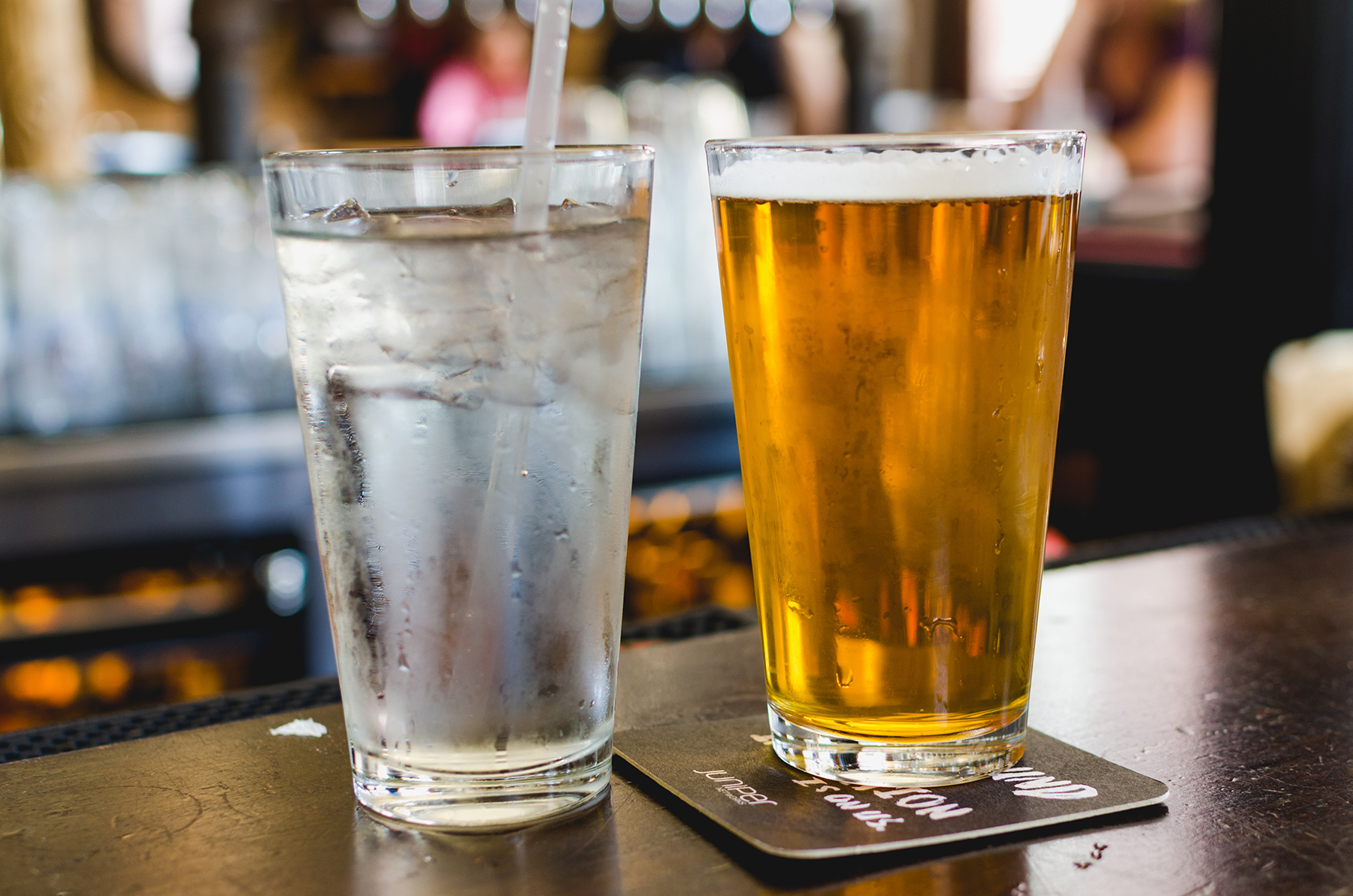The Appeal of Being ‘Sober Curious’

Alcohol is the subject of songs, the centerpiece of parties, and the “happy” in happy hour. It’s as American as beer at a baseball game. But today, more and more people are becoming “sober curious,” reducing or eliminating their alcohol consumption and embracing healthier habits.
The motivations are many. Some seek mental clarity and better sleep. Others want to lose weight or avoid mixing alcohol with their medications. Pregnant women need to protect their unborn children from birth defects. For others, sober curiosity is a natural next step in their commitment to clean eating.
“Wait, you’re not drinking? Are you pregnant?”
In many cultures and social circles, passing up a drink is impolite at best, a social snub at worst. Not to worry, says Elizabeth Ferrer, a registered dietitian with the University of Miami Health System, a few tips will help you blend in with the imbibing crowd.
Opt for kombucha.
When your buddies gather at the neighborhood microbrewery, you don’t have to stay home. “Many craft beer breweries offer kombucha, a bubbly, non-alcoholic drink made from fermented tea, yeast, and a small amount of sugar. It’s lower calorie, with about three grams of protein and six grams of carbohydrates.” It’s also chockful of active cultures, which improves digestion.
Be stealthy. Be sober.
“Slip a can of sparkling water into a koozie and no one will know you’re not drinking beer,” she says.
Looking for a tasty mocktail? Sparkling water with a splash of cranberry and slice of lime is a refreshing non-alcoholic alternative.
Slow will keep you steady.
Maybe you’re not ready to give up drinking, but want to reduce your consumption. Ferrer says skip the first round. “No one will notice and you’ll skip the extra calories as well.”
She also suggests drinking eight ounces of water every time you drink an alcoholic beverage. And never drink booze on an empty stomach. Eat a handful of nuts, a slice or two of cheese or another protein snack when you imbibe.
Our bodies register alcohol as liquid, but alcohol dehydrates, so it’s a catch 22. Your body thinks it’s getting fluid, and you end up not drinking enough water. Hello hangover!
Drink plenty of water. When you pee, check to make sure it is a light or pale yellow and you should be urinating regularly.
Find the sweet spot.
Fresh juice is a delicious change of taste, as long as you limit it to less than four ounces of 100 percent juice per day. Soda is another nice cocktail replacement, just don’t drink too much of the sugary beverage and avoid using syrups in your real or virgin cocktail.
Get a fresh twist.
Use fresh ingredients like lemons, limes or grapefruit slices and herbs like mint, lavender, sage or basil to liven up your non-alcoholic libations.
Look for zero-proof products.
The beverage landscape is changing, thanks to the sober curious trend. Most grocery stores, bars, and restaurants now stock a growing selection of low calorie non-alcoholic beer and wine.
Ferrer recommends this eye-opener mocktail: “Add a splash of lime and lemon juice and few mint leaves to one cup of sparkling water on ice.” One caveat: If your social gathering includes young adults under age 21, don’t serve them non-alcoholic beer or wine. “They could get used to the flavors and the extra sugars when they should be drinking healthier beverages like water.”
Health experts also discourage people in addiction rehab or recovery programs from drinking non-alcoholic beer and wine, because those drinks are so similar in taste, aroma, and appearance to the alcoholic version.
Wean off the wine.
“With dieting or drinking, cold turkey is a tough way to go. Reducing portion size is more important. If you usually order a 16 ounce beer, order a 12 or 8 ounce instead. Or drink one soda a day instead of two.”
Remember, being sober curious isn’t like being in a recovery program. If you struggle with alcoholism or frequent drinking, seek help from your family doctor or a 12-step group such as Alcoholics Anonymous.
“Healthy lifestyles are about being conscious of the people you surround yourself with,” says Ferrer. That said, if your social circle doesn’t support your choice to reduce or refrain from alcohol, you may want to find people who do.
Nancy Moreland is a contributor to UMiami Health News. She has written for several major health care systems and the Centers for Disease Control and Prevention. Her articles also appear in the Chicago Tribune.
Tags: alcohol, alcohol consumption, Elizabeth Ferrer, healthy beverage, healthy living, Nutrition
